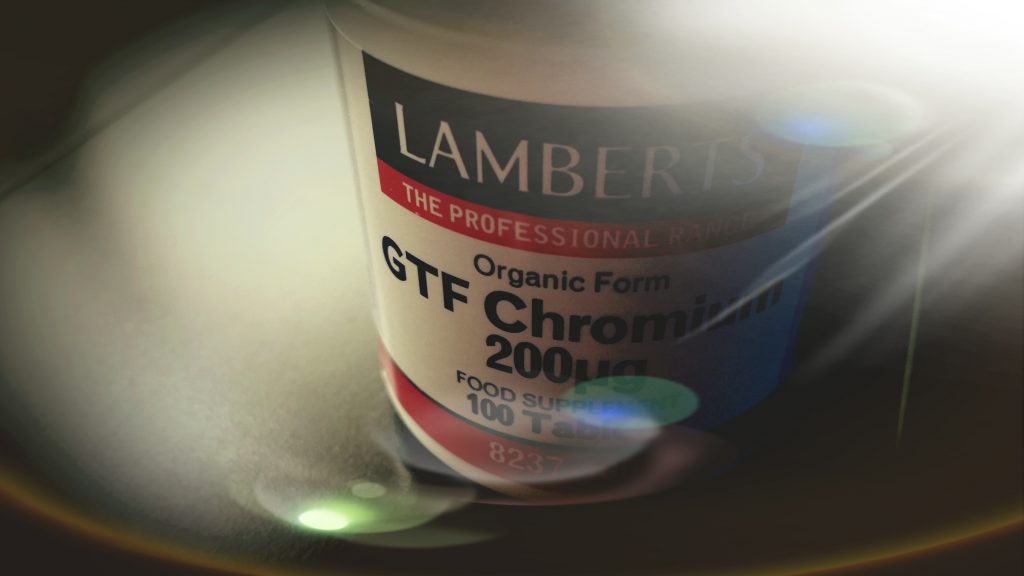 Chromium is an essential trace mineral required for human health. Current studies suggest that the chromium intake of Western countries is too low and many individuals are at risk of subclinical deficiencies. This relates to the poor quality of the food in the diet and the lack of suitable sources of chromium. Low intakes of chromium are known to cause dysfunction to the insulin system. Studies have shown to chromium may be required for the synthesis of serotonin in the brains of humans. One study investigated the ability of chromium to cause brain changes in healthy subject with no history of mood disorders. In this study, one week of 100 micrograms per day of chromium picolinate significantly increased the ability of tryptophan to reach the brain from the blood, and this then increased serotonin levels in the brain. Further, 5-hydroxyindoleacetic acid (5-HIAA), a metabolite of serotonin, was also significantly increased in the brain of the subjects suggesting that serotonin turnover had also increased.
Chromium is an essential trace mineral required for human health. Current studies suggest that the chromium intake of Western countries is too low and many individuals are at risk of subclinical deficiencies. This relates to the poor quality of the food in the diet and the lack of suitable sources of chromium. Low intakes of chromium are known to cause dysfunction to the insulin system. Studies have shown to chromium may be required for the synthesis of serotonin in the brains of humans. One study investigated the ability of chromium to cause brain changes in healthy subject with no history of mood disorders. In this study, one week of 100 micrograms per day of chromium picolinate significantly increased the ability of tryptophan to reach the brain from the blood, and this then increased serotonin levels in the brain. Further, 5-hydroxyindoleacetic acid (5-HIAA), a metabolite of serotonin, was also significantly increased in the brain of the subjects suggesting that serotonin turnover had also increased.

Evidence suggests that chromium can potentiate the action of insulin, perhaps because it increases membrane fluidity and this increases the internalisation of insulin to cells, thus increasing glucose uptake. The ability of chromium to improve insulin sensitivity may explain its rapid effect at treating depression because insulin is involved in the transport of tryptophan to the brain, and this tryptophan is subsequently converted to serotonin.
Chromium picolinate supplementation was also able to lower serotonin mediate cortisol release in the subjects, suggesting that chromium may also have anti-stress properties. This finding was also replicated in rats, who responded to the chromium supplements with decreased blood corticosterone levels (in response to stress animals release corticosterone, whereas humans release cortisol). Other studies have confirmed that chromium supplementation may be useful in the treatment of depression and may augment the effectiveness of antidepressant drugs. For example in one study involving a 5 patient case study design, chromium supplements were reported to cause remission in subjects suffering from dysthymic disorder (chronic depression) who were currently taking medication. The chromium was able to significantly improve the mood of the subjects, whereas previously the drug therapy had not been successful when used alone. Chromium may therefore be a useful treatment for depression.
Eat Well, Stay Healthy, Protect Yourself
RdB
